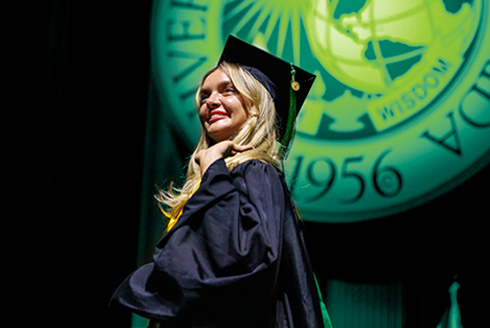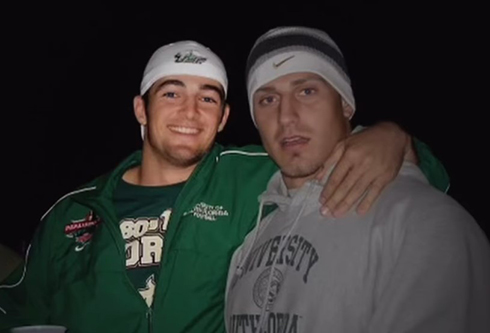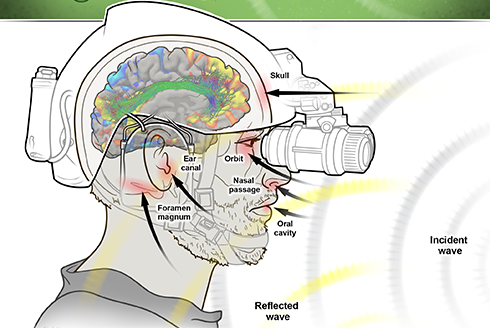University of South Florida News

USF recognized by Forbes as one of America’s top large employers and the best among Florida universities
The University of South Florida has been named one of the nation's premier employers and top university employer in Florida by Forbes, highlighting its vibrant workplace culture, commitment to innovation and investment in employee success.
April 8, 2025University News

U.S. News & World Report ranks USF a national leader for dozens of graduate programs
The University of South Florida has 31 graduate programs ranked in the top 100 nationally by U.S. News & World Report, including 15 in the top 50 and five in the top 25. With standout programs such as industrial-organizational psychology, criminology and rehabilitation counseling, USF continues to rise as a leader in graduate education and research excellence.
April 8, 2025Student Success, University News

Former USF football player’s harrowing survival at sea retold in documentary, feature film
Sixteen years ago, 2008 graduate Nick Schuyler was in a boating accident in the Gulf that killed his three friends. He was the sole survivor. Now, a documentary and Hollywood film will tell the tragic tale that made national headlines.
April 21, 2025USF Athletics, USF in the News

USF celebrates construction milestone for new facility aimed at addressing Florida’s nursing shortage
The USF Health College of Nursing’s new 34,000-square-foot facility is set to transform nursing education, reinforcing the university’s leadership in meeting the state of Florida’s growing demand for qualified nurses.
April 17, 2025USF Health, University News

USF strengthens research into potential military brain injury with new federal funding
Results from a key study led by the University of South Florida about potential brain injuries in members of the military are driving significant new investment from the U.S. Department of Defense – reinforcing the vital role of academic research in solving some of the nation’s most critical challenges.
April 16, 2025Community Partnerships, Research and Innovation
USF Magazine
USF breaks ground on the on-campus stadium, researchers work to unravel the mysteries of Alzheimer's Disease and a look inside the first residence hall on the USF Sarasota-Manatee campus.
